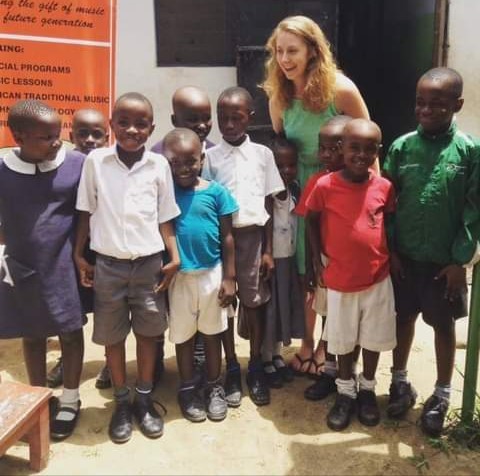Welcome to the Child Care Program!
Our Child Care Program offers students a comprehensive education in the skills required to care for children in diverse settings, including nurseries, schools, homes, and community organizations. The program focuses on both the emotional and physical well-being of children, equipping students with the knowledge and expertise needed to succeed in child care and development careers. Students will not only learn the theoretical foundations of child care but will also gain hands-on experience in creating safe, nurturing environments for children.
Throughout this enriching program, students will delve into various aspects of child care, including:
- Early Childhood Development, focusing on the physical, cognitive, emotional, and social growth of children
- Child Health and Nutrition, emphasizing the importance of proper nutrition and healthy lifestyle choices for children
- Child Safety and First Aid, providing students with the knowledge to respond to emergencies and ensure a safe environment
- Providing Emotional Support, teaching students how to support children's mental health and emotional well-being
- Child Play and Learning, exploring the significance of play in child development and how to facilitate educational play activities
- Behavior Management Techniques, offering strategies to guide positive behavior and handle challenging behaviors in children
- Creative Activities for Children, learning how to engage children with creative and stimulating activities that promote their development

In addition to classroom learning, students will gain valuable hands-on experience in child care environments, including:
- Hands-on experience in child care centers, where students work directly with children to apply their learning in real-world settings
- Caring for infants and toddlers, including understanding their unique needs and developmental stages
- Organizing educational activities and games, developing age-appropriate learning experiences for children
- Monitoring and supporting children's developmental milestones, recognizing the signs of developmental delays and understanding how to foster growth
Timing/ Duty Hours
During elective rotations, medical students typically work shifts that can range from 8 to 12 hours, and these shifts can be scheduled during the day, night, or weekends, potentially including overnight call duties.
Medical students undertaking clinical rotations will need to work shifts as would any practicing doctor. Shifts last between 8 and 12 hours and can be scheduled during the day, night-time or weekend. Students may also be asked to be on call, depending on the medical settings
Theoretical and Practical Learning
The program is designed to provide students with a well-rounded education that combines theoretical knowledge with practical experience. Through engaging lectures and in-depth discussions, students will explore child development theories, psychological principles, and best practices for care and safety. Students will also participate in hands-on training in diverse childcare settings, providing them with the opportunity to apply their learning in real-time.
Key areas covered in the program include:
- Promoting health and hygiene practices, including personal care and maintaining a clean, safe environment
- Building supportive relationships with families, fostering effective communication between caregivers and parents
- Understanding ethical practices in child care, including respecting children's rights, confidentiality, and cultural sensitivity
- Early intervention for children with special needs, teaching students how to identify and support children with developmental or behavioral concerns
Skills Development
The Child Care Program emphasizes the development of practical skills that are crucial for working with children. Some of the key skills students will master include:
- Child-Centered Care, ensuring that the needs of each child are met and their individuality is respected
- Activity Planning, learning to create fun, engaging, and educational activities for children of various ages
- Observation Skills, being able to assess children’s behaviors, needs, and development effectively
- Conflict Resolution, learning how to mediate disputes between children and maintain harmony in group settings
Career Opportunities
Upon completion of the Child Care Program, graduates can pursue a variety of fulfilling and impactful career opportunities. Some of the roles available to graduates include:
- Child Care Provider, responsible for the overall care and supervision of children in daycare centers or private homes
- Early Childhood Educator, teaching foundational skills to children in a preschool or educational setting
- Special Needs Caregiver, providing tailored care to children with developmental disabilities or learning challenges
- Nanny, offering individualized care and assistance in private homes
- Child Development Specialist, working in clinics, schools, or research settings to support children's developmental health
Our Child Care Program is aligned with the highest industry standards and guidelines to ensure our students receive the best education possible. We are excited to support students who wish to pursue a fulfilling career in child care and development, making a lasting difference in the lives of children and families worldwide.
We are committed to supporting students who wish to pursue a future in these professional fields. Our program is aligned with the AAMC’s guidelines to ensure that our students receive the best care education and training possible.
